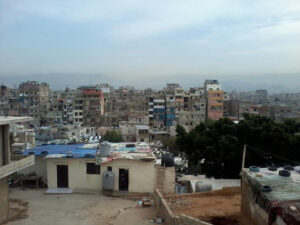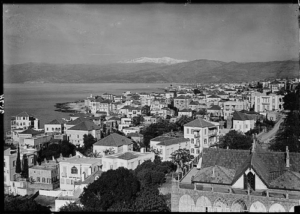Historical Laboratory Projects
Postcolonial-Khachan
People around the world were introduced to the European cultural because of colonialism. “Colonialism sanctioned the spread of Europeans throughout the world on both economic and cultural grounds.”[1] As we see European culture, economic system, languages, lifestyle were spread in the whole countries that they colonized. Postcolonial is defined as the period after World War II. When those countries had their independence and start building their own government and rule it. “The decades immediately following the Second World War have often been described as the age of decolonization. During the second half of the twentieth century the European powers granted independence to, or were forced out of, colonies acquired over the previous four centuries.” [2] France and Great Britain started withdrawing their military from the countries that were colonized them. As an example, for the independence, the countries in the Middle East, North Africa, and India. Algeria suffered a lot to gain its independence and was known for the revolution of one million martyrs. Struggle figures emerged in the period of independence, such as Ghandhi in India. The postcolonial era, that is, the second half of the twentieth century, produced figures such as Ghandhi, Martin Luther King Jr., and Nelson Mandela. These personalities and others were the product of injustice and colonialism that did not end with the military withdrawal, and I will talk about it later. People wanted their freedom at any price, some of them fought colonialism peacefully and some of them resisted field resistance, but gaining independence and freedom costs martyrs, blood, and injured.
The citizens of the developing countries who were colonized by the French and the British worked to decolonize. But there are estimates that colonialism is the richest of those countries. As it says “the magnitude of European imperial expansion may be measured both by its unprecedented geographic spread, and the millions of human beings whose lives and cultures were irretrievably altered. It is estimated that more than three-quarters of the people living in the world today have had their lives shaped by the experience of colonialism.” [3] These ideas are not wrong. The interaction of cultures and civilizations increases people’s richness, knowledge, and development, which changes somewhat in their lifestyles. This is a well know and historical thing. It did not happen only in the twentieth century, and we give many examples, including the campaign of Alexander the Great, which brought together east and West and was extremely important in its occurrence. Then with regard to the European colonization of the Middle East, it was not the first time in the twentieth century, but it was preceded by a thousand years by the Crusades that colonized it for a period. The settlement of the Crusades in the Middle East and the Holy Land had a great impact and clear interaction between cultures, customs, and traditions between Europeans and Muslims and between Europeans and Eastern Christians.
Therefore, the definition of postcolonial Europeans was, the period that followed the military withdrawal and the citizens of those countries began to build the government, and the government institutions, also rule their countries. The people of the countries colonized by Europe did not recognize the postcolonial era, but it defined it to the era of neo-colonialism, which is mean new colonialism. Independence happened just with military and direct political domination.
These countries stayed dependent on Europe and later the United States, during the postcolonial era, in economics and market, under a new term. Their influence stayed, as an example from a developed country Australia, “the Australian aboriginal writer, Babbi Sykes pinpointed one difference: In the white settler states the Europeans never went home.” [4] “For example, in Australia, New Zealand, and Canada, Aboriginal and First Nation’s peoples are currently engaged in complex negotiations with their respective governments over the return of land and natural resources.” [5] As for the developing countries, these countries continued to suffer under the yoke of economic slavery. “Almost all former European terms the colonized peoples remain amongst the most impoverished in the world.” [6] The poverty of these countries in evidence of neo-colonialism, that is, economic control. There are countless examples on this subject. The colonial countries manufactured cars, medicines, and weapons; and no one else was allowed to do so especially in the postcolonial period. Also, controlling the stock exchange, is there a sock exchange in any of the developing countries? Of course not. The production of wheat, minerals, etc. The colonial countries are the ones who determine their prices because they control the markets and pricing and argue with supply and demand. Moreover, all raw materials in the whole world are only priced in dollars. This hurts developing countries a lot because the United States controls the dollar. This economic weapon makes them control the developing countries, not through military domination, but through economic weapons. Whenever they want, they can impose economic sanctions on any country they want, so they destroy it and its currency collapses and it becomes an economically exhausted country.
Edward Said, a Palestinian American, he was born in Jerusalem the Holy Land. His best-know work is Orientalism, and it’s one of the most influential scholarly books of the twentieth century. He considered orientalism North Africa and the Middle East which were under France and Great Britain. He also believed that beside ruling those countries politically and economy. Sending missionary was something very important. “Said defined the discourse of orientalism as a representation with little relationship to any reality, while also arguing that the knowledge generated by scholars of the Orient was actively employed by colonial administrator.” [7] The main idea of colonialized was that the Europeans occupied third world countries to control their wealth, rape, and oppress their people. The rulers in Africa and the Middle East are not free with their actions and decisions, but rather they are dependent on the west. The population is against the idea of the postcolonial, they consider themselves without independence. After the defeat of Germany and its ally the Ottoman Sultanate, the Ottomans withdrew from the Arab lands they had occupied for 4 centuries. France and Great Britain shared those lands and established countries. The U.S. rejected the idea and President Wilson believed that the people have the right to determine their fate. Therefore, the U.S. didn’t agree in the Security League with the idea of a mandate. After this, France was appointed as a mandate for Lebanon and Syria.
French colonialism began under the name of the mandate over Lebanon and Syria, which continued throughout the period between the First and Second World Wars. The idea of the mandate came for the sake of the peoples who were suffering from long periods of colonialism. The mandate aims to build the state, the constitution, government, and institutions. He extended the control of the government security forces over the entire Mandatory State and social justice, so that Lebanon would be similar to France. Which didn’t happen, “at the same time, however, the influx of wealth from foreign sources accrued almost entirely to the bourgeoisie, and was accompanied by an internal transfer of wealth from workers, peasants and the Poor to the rich, by virtue of the huge increase in prices that was a consequence of the profiteering activities of the merchants and industrialists alike. As the bulk of the Lebanese population struggled to pay for food, clothing, and shelter, the Lebanese elite prospered and amassed huge savings.” [8] With system the occurrence of these things, resentment appeared by the common people against the French. During the postcolonial time, the economic system in Lebanon was an unproductive economy, so a small group of people Benefield from it, and they are the ones who rule, their relatives, and those who belong to them. I can say it was almost like the spoil system in the U.S., but with a lot of corruption and deals “the basic nature of the Lebanese economy, as it developed after independence, and following the triumph of commercial and financial interests in their struggle to shape the postcolonial terrain, was captured succinctly in a report prepared in 1960 for the government of the President Fuad Chehab by the American economist Benjamin Higgns.” [9] Higgns took care of that by doing like an investigations and study of the period between independence and the early 1970s.
The result was that Lebanon has an unusual economic character, “it allowed some degree of prosperity and wealth to accrue to the country; it was undesirable to allow it to persist. Higgins’ report was very much in accord with this line of analysis, asserting frequently the “unique” and “peculiar” aspects of Lebanon’s economy and pointing to the central issue facing Lebanese society.”[10] The problems of corruption, nepotism, the lack of social justice, the focus on the capital and bourgeois families, and the marginalization of the country’s periphery, the countryside, the peasants, the workers, the led to the return of feudalism, but in a slightly gentler way, and to a population exodus from the remote countryside to the capital. Also, the emergence of belts of misery from the Lebanese poor themselves and from the Palestinians who were displaced from their motherland and sought refuge in neighboring countries in 1948 following the establishment of the State of Israel. They all lived in misery belts. All of these reasons will have a direct in 1975, a massive explosion that will lead to a civil war that will last 15 years. Here Edward Said in his famous book Orientalism, mention in the introduction “on a visit to Beirut during the terrible civil war of 1975-1976 a French journalist wrote regretfully of the gutted downtown area that it had once seemed to belong to … the Orient of Chateaubriand and Nerval. He was right about the place, of course, especially so far as a European was concerned” [11] there is a special relation between Europe and the Middle East in general, and Europe, and Lebanon in specific. Yes, it is a special relation. Lebanon is a francophone country. There are many Lebanese authors and writers who write books in French. French literature has its own flavor and privacy in Lebanon. Older and young read and write French. On the religious level, there is a twinning between the dioceses of France and of Lebanon. This special relation between Europe and the Orient we don’t see it for example between the United States and the Orient “Americans will not feel quite the same about the Orient, which for them is much more likely to be associated very differently with the far East like China and Japan.” [12] Another example that we can give about the Levantine-European interaction is the Andalusian era when the Arabs ruled. The Andalusia for about 800 years, specifically 781 years.
Image Citations
Revisiting Vulnerability in a Slum of Beirut: when Citizenship Disempowers
Read More at: https://civilsociety-centre.org/paper/revisiting-vulnerability-slum-beirut-when-citizenship-disempowers Copyrights © 2019 Lebanon Support. All rights reserved.
Failed Enlightenment: Urban Design and French Modernity in Beirut,Kate Maddox


